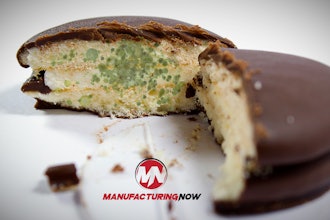A major U.S. aerospace manufacturer has successfully solved a troublesome assembly problem requiring the bonding of optical glass lenses to an aluminum supporting frame. The completed assembly had to be capable of withstanding severe mechanical shocks and vibration as well as large temperature cycling from as low as -60 deg. F to as much as 250 deg. F.
Additional performance specifications included extensive humidity cycling over a wide range of temperatures without loss of adhesive strength. The manufacturer’s engineering staff analyzed the problem as related to the large mismatch of the thermal expansion coefficients of the glass and metal components, a mismatch further aggravated by the specified mechanical shock and temperature requirements.
Several adhesive systems were experimentally investigated by the manufacturer’s engineering groups. These adhesive compounds included acrylic, polyurethane, silicone and certain epoxy resin formulations. All the products investigated failed to meet the required performance specifications for the glass/metal assembly.
Specifically, silicone adhesives proved to lack adequate physical strength properties but did pass thermal and mechanical shock tests. Polyurethane had marginal physical strength, shock and vibration performance while failing humidity testing protocol. Acrylic and the specific epoxy resin formulations were not capable of meeting the shock and vibration requirements, especially at low service temperatures.Master Bond Inc. developed a specially designed, elastomer-modified epoxy resin system called EP21TDC which not only met but significantly surpassed all the performance requirements of the manufacturer. The EP21TDC is an easily applied, paste-like elastomeric epoxy adhesive with a convenient non-critical, one-to-one mix ratio, weight or volume. It has a convenient one-hour working life after mixing and can be readily cured at ambient temperatures or more quickly at elevated temperatures.
The cured epoxy adhesive had outstanding physical strength properties, excellent high mechanical shock resistance (up to 400 g’s) and easily accommodated temperature as well as the humidity protocol. Additionally, the adhesive, which is 100% reactive and does not contain any volatile ingredients, could be conveniently processed with existing commercial dispensing equipment. The successful use of the EP21TDC system has led the manufacturer to utilize the same compound for bonding plastics, including polycarbonates and acrylics, to metals.
Master Bond Inc.201-343-8983

















